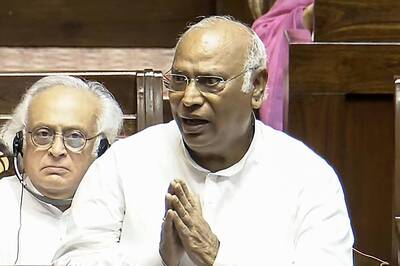
views
Mingora, (Pakistan): Pakistan's President Asif Ali Zardari, under pressure from conservatives, has signed a regulation imposing Islamic law in the northwestern Swat valley as part of a deal to end Taliban violence.
The strategy of appeasement has alarmed US officials, while critics say the government has demonstrated a lack of capacity and lack of will to fight the Taliban and al Qaeda.
Zardari signed the regulation late on Monday after the National Assembly passed a resolution recommending he approve it. Many residents of the scenic valley, 125 km northwest of Islamabad, hoped the agreement would bring peace after 18 months of bloodshed.
"As long as there's peace, it doesn't matter what the law is," said Javed Ahmed, 26, a shopkeeper in Swat's main town of Mingora.
"If sharia law can do that, that's just fine." Surging violence across Pakistan and the spread of Taliban influence through the northwest are reviving concerns about the stability of nuclear-armed Pakistan, an important US ally vital to efforts to stabilise neighbouring Afghanistan.
The government has struggled to come up with an effective strategy, alternating in different areas between military offensives and peace deals. But the militants have been gaining strength while violence in both Pakistan and Afghanistan has been on the rise. Swat was one of Pakistan's main tourist destinations until 2007, when militants infiltrated into the valley from strongholds on the Afghan border to the west in support of a radical cleric.
After inconclusive military offensives and a failed peace pact, authorities accepted an Islamist demand for sharia, or Islamic law, in February. Like his predecessor, General Pervez Musharraf, Zardari has spoken out strongly against the threat posed by the Taliban and militancy to Pakistan's future.
Zardari, however, has become arguably as unpopular as Musharraf, the military ruler he forced from office last August, and his views run counter to the mood in the Muslim nation. Rival Nawaz Sharif, currently the most popular politician in the country, remains equivocal on the issue, having stopped short of giving strong public backing for the use of force.
Many Pakistanis believe the violence would wind down if the government and the army resisted US calls for more action against the militants.
RELIEF COULD TURN TO REGRET: The United States and Pakistani critics say deals with the Taliban create safe havens for them and their al Qaeda allies.
Sufi Mohammad, a pro-Taliban cleric who brokered the Swat accord, said it would bring peace to the valley. "Those who have carried guns will quit their armed struggle," he told ARY television.
The Taliban brought fear to the valley, bombing and beheading members of the security forces, executing opponents and blowing up hundreds of girls' schools.
Ayesha Khan, a women's rights activist from Swat now living in the capital, said the government was accepting Taliban rule by submitting to demands for sharia. "How can this regulation bring peace or real justice if you don't have even your basic rights," she asked. "People may be happy today but they're going to regret it." Some Taliban fighters last week moved out of Swat and into Buner district, only 100 km from Islamabad. Buner residents formed a militia to try to resist the militants and 13 people, including eight Taliban, three policemen and two villagers, were killed in clashes.
But, police and residents say the Taliban has begun imposing its rule in Buner.




















Comments
0 comment